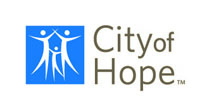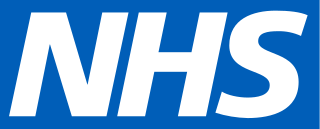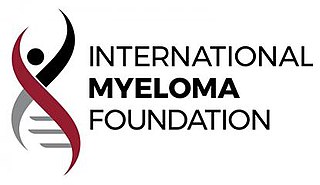Palliative care is an interdisciplinary medical caregiving approach aimed at optimizing quality of life and mitigating suffering among people with serious, complex illness. Within the published literature, many definitions of palliative care exist. The World Health Organization (WHO) describes palliative care as "an approach that improves the quality of life of patients and their families facing the problems associated with life-threatening illness, through the prevention and relief of suffering by means of early identification and impeccable assessment and treatment of pain and other problems, physical, psychosocial, and spiritual." In the past, palliative care was a disease specific approach, but today the WHO takes a more broad approach, that the principles of palliative care should be applied as early as possible to any chronic and ultimately fatal illness.

The American Cancer Society (ACS) is a nationwide voluntary health organization dedicated to eliminating cancer. Established in 1913, the society is organized into six geographical regions of both medical and lay volunteers operating in more than 250 Regional offices throughout the United States. Its global headquarters is located in the American Cancer Society Center in Atlanta, Georgia. The ACS publishes the journals Cancer, CA: A Cancer Journal for Clinicians and Cancer Cytopathology.
Terminal illness or end-stage disease is a disease that cannot be cured or adequately treated and is reasonably expected to result in the death of the patient. This term is more commonly used for progressive diseases such as cancer or advanced heart disease than for trauma. In popular use, it indicates a disease that will progress until death with near absolute certainty, regardless of treatment. A patient who has such an illness may be referred to as a terminal patient, terminally ill or simply as being terminal. There is no standardized life expectancy for a patient to be considered terminal, although it is generally months or less. Life expectancy for terminal patients is a rough estimate given by the physician based on previous data and does not always reflect true longevity. An illness which is lifelong but not fatal is a chronic condition.

Head and neck cancer develops from tissues in the lip and oral cavity (mouth), larynx (throat), salivary glands, nose, sinuses or the skin of the face. The most common types of head and neck cancers occur in the lip, mouth, and larynx. Symptoms predominantly include a sore that does not heal or a change in the voice. Some may experience a sore throat that does not go away. In those with advanced disease, there may be unusual bleeding, facial pain, numbness or swelling, and visible lumps on the outside of the neck or oral cavity. Given the location of these cancers, trouble breathing may also be present.

Tenovus Cancer Care is a Welsh cancer charity that supports cancer patients and their families, funds cancer research and works to raise awareness of how to prevent cancer.

Relay For Life is a community-based fundraising event for the American Cancer Society and many other Cancer related institutions, societies and associations. Each year, more than 5,000 Relay For Life events take place in over twenty countries. Events are held in local communities, university campuses and in virtual campaigns. As the American Cancer Society's most successful fundraiser and the organization's signature event, the mission of Relay For Life is to raise funds to improve cancer survival, decrease the incidence of cancer, and improve the quality of life for cancer patients and their caretakers.

UC Davis Medical Center is part of UC Davis Health and a major academic health center located in Sacramento, California. It is owned and operated by the University of California as part of its University of California, Davis campus. The medical center sits on a 142-acre (57 ha) campus located between the Elmhurst, Tahoe Park, and Oak Park residential neighborhoods. The site incorporates the land and some of the buildings of the former Sacramento Medical Center as well as much of the land previously occupied by the California State Fair until its 1967 move to a new location.
Residential care refers to long-term care given to adults or children who stay in a residential setting rather than in their own home or family home.
The American Kidney Fund (AKF) is a publicly supported 501(c)(3) non-profit organization founded in 1971.

Cancer Treatment Centers of America (CTCA), headquartered in Boca Raton, Florida, is a national, for-profit network of five comprehensive cancer care and research centers and three out patient care centers that serves cancer patients throughout the United States.

City of Hope is a private, not-for-profit clinical research center, hospital and graduate medical school located in Duarte, California, United States. The center's main campus resides on 110 acre of land adjacent to the boundaries of Duarte and Irwindale, with a network of clinical practice locations throughout Southern California, satellite offices in Monrovia and Irwindale, and regional fundraising offices throughout the United States.

A caregiver is a paid or unpaid member of a person's social network who helps them with activities of daily living. Since they have no specific professional training, they are often described as informal caregivers. Caregivers most commonly assist with impairments related to old age, disability, a disease, or a mental disorder.

The American Cancer Society Cancer Action Network is a nonprofit, nonpartisan advocacy affiliate of the American Cancer Society. It was founded in September 2001 to directly lobby the goals of the American Cancer Society, which is subject to restrictions on advocacy activities because of its tax classification. ACS CAN works to make cancer a national priority. Specifically, it advocates for better access to care, cancer prevention and early detection programs, cancer research funding, regulation of tobacco by the U.S. Food and Drug Administration, better quality of life for cancer patients, and attempts to raise awareness of and reduce cancer disparities. Members include cancer survivors, caregivers, patients, volunteers, and students, including Colleges Against Cancer.

The National Health Service (NHS) is the umbrella term for the publicly funded healthcare systems of the United Kingdom (UK). Since 1948, they have been funded out of general taxation. There are three systems which are referred to using the "NHS" name. Health and Social Care in Northern Ireland was created separately and is often locally referred to as "the NHS". The four systems were established in 1948 as part of major social reforms following the Second World War. The founding principles were that services should be comprehensive, universal and free at the point of delivery—a health service based on clinical need, not ability to pay. Each service provides a comprehensive range of health services, free at the point of use for people ordinarily resident in the United Kingdom apart from dental treatment and optical care. In England, NHS patients have to pay prescription charges; some, such as those aged over 60 and certain state benefit recipients, are exempt.

Newton-Wellesley Hospital (NWH) is a community teaching medical center located in Newton, Massachusetts on Washington Street. It is affiliated with Tufts University School of Medicine and Harvard Medical School. Founded in 1881, part of its campus is listed on the National Register of Historic Places as the Newton Cottage Hospital Historic District.
An informal or primary caregiver is an individual in a cancer patient's life that provides unpaid assistance and cancer-related care. Due to the typically late onset of cancer, caregivers are often the spouses and/or children of patients, but may also be parents, other family members, or close friends. Informal caregivers are a major form of support for the cancer patient because they provide most care outside of the hospital environment. This support includes:

TheSkin Cancer Foundation (SCF), founded in 1979, aims to "empower people to take a proactive approach to daily sun protection and the early detection and treatment of skin cancer." The organization has developed a mix of programs and resources that serve the needs of a diverse audience. SCF disseminates information via its digital resources, public service campaigns and community programs, including Destination: Healthy Skin. The foundation's professional membership includes dermatologists, Mohs surgeons, plastic surgeons and other medical professionals working to fight skin cancer. Headquartered in New York City, the foundation is a 501(c)(3) public charity.

The International Myeloma Foundation (IMF) is an American non-profit organization serving patients with myeloma, a cancer of plasma cells in the bone marrow. The IMF also provides support and information for family members, caregivers of myeloma patients, physicians and nurses. The organization is dedicated to improving the quality of life for all myeloma patients by focusing on four key areas: research, education, support, and advocacy.
The Pancreatic Cancer Action Network (PanCAN) is a United States-based 501(c)(3) charity that funds research, provides patient/caregiver support, conducts community outreach and advocates for increased federal research funding for those affected by pancreatic cancer.












